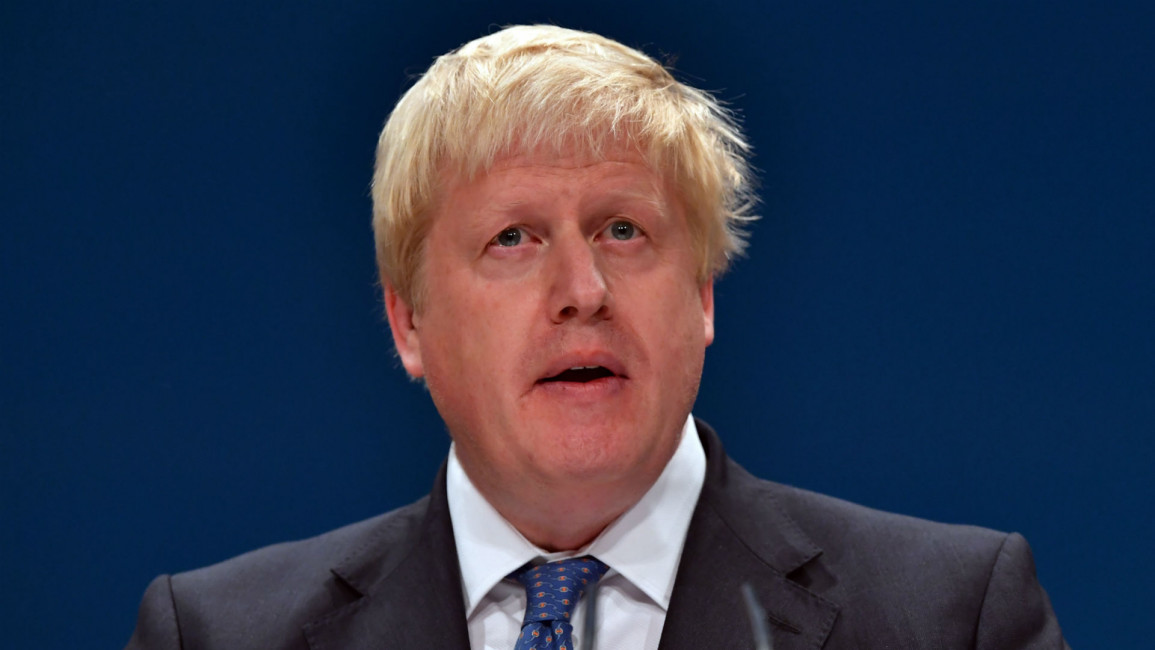Boris Johnson calls for protests outside Russian embassy
The comments were made during an emergency parliamentary debate, where UK lawmakers discussed the deteriorating humanitarian situation in the northern Syrian city of Aleppo following weeks of bombing.
"If Russia continues in its current path then I think that great country is in danger of becoming a pariah nation," Johnson told parliament.
He then called on anti-war groups to picket the Russian embassy in the UK capital.
Similar protests by Syrian activists have taken place many times in recent weeks following the Russian assault on Aleppo.
"All the available evidence therefore points to a Russian responsibility for the atrocity," he said.
Johnson referred specifically to the attack on a UN-led aid convoy in September. The attack killed 20 aid workers and destroyed 18 of the convoy's 31 trucks.
The former London mayor called for new sanctions on Russia and Syria if the reckless bombardment continues.
Many other MPs joined the condemnation including former cabinet minister Andrew Mitchell.
He compared Russian actions to those of Nazis in the 20th century.
"What Russia are doing to the United Nations is precisely what Italy and Germany did to the League of Nations in the 1930s. And they are doing to Aleppo precisely what the Nazis did to Guernica in the Spanish Civil War," he said.
 |
| A UN report recently concluded that September's convoy attack was caused by airstrikes, which Russia denies [Anadolu] |
A double-edged attack
The UK foreign secretary also used the opportunity to attack Britain's left-wing Stop the War Coalition [StWC] - a group that was at the centre of the anti-Iraq war movement in the early 2000s.
The group has come under increasing pressure in recent weeks to condemn Russian and Syrian actions but so far failed to do so.
"Where is the Stop the War coalition at the moment? Where are they?" Johnson asked, to which MPs laughed and sniggered.
Speaking to The New Arab, Chris Nineham, a founding member of the protest group, hit back at Johnson's words and what he called the "hypocrisy" of British MPs.
"It's complete hypocrisy on their part. They say the Russian interventions are disastrous, but they're planning to do the exact same thing. They recognise not only does it [Russian bombing] cause death and destruction, but at the same time, by some miracle, when British and American forces attack, it supposedly bombs people into peace," he said.
| Read More: Labour leader Jeremy Corbyn accused of 'condoning Assad's genocide | ||
"It's our job to oppose the wars that have been generated by Britain and the Western powers over the last 15 years. We are in Britain, one of the organising centres of the Western world, and our our job is stopping them."
Last week, activists were jeered at a StWC event in London after confronting Labour Party leader Jeremy Corbyn about his stance on Syria. They accused Corbyn, a former chair of StWC, of complicity in the Assad regime's brutal campaign against the Syrian people due to his relative silence on the matter.
Resumption of airstrikes
Johnson's speech came as Russia resumed its heavy bombing of Aleppo, after the city enjoyed a few days of relative peace.
Last week, the Syrian regime and its Russian ally reduced the number of air raids on Aleppo, which it claims was to allow civilians to "escape" from rebel-held neighbourhoods.
Twitter Post
|
Damascus has also said that opposition fighters in the city will be allowed to leave with their families if they give up their arms. Opposition groups have dismissed the offer as trickery.
According to reports, as many as 50 people were killed in the strikes on Tuesday.



